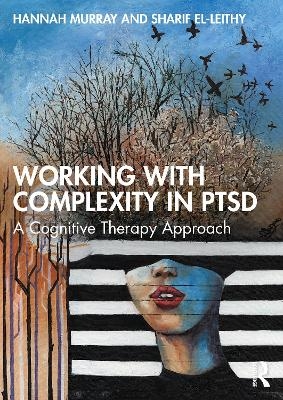
Working with Complexity in PTSD
Routledge (Verlag)
978-1-032-26408-0 (ISBN)
Cognitive therapy for PTSD is a highly effective treatment, but aspects of clinical complexity can complicate treatment and limit its effectiveness. Trauma memories themselves can be complex, the associated meanings can resist change and people may struggle to engage with them without feeling overwhelmed. Problems that commonly arise alongside PTSD add to clinical complexity, such as comorbid psychological or physical disorders, social problems, and ongoing risks. Bringing together the science and art of therapy, this book demonstrates how to approach these issues by holding firm to the principles of CBT, whilst flexing and creatively adapting techniques for each unique circumstance. Rich case studies, top tips, and frequently asked questions are used throughout to demonstrate the approach.
Written by clinicians for clinicians, the book synthesizes the latest research into a practical treatment manual to help readers overcome obstacles in PTSD treatment and ‘supercharge’ their therapy skills.
Dr Hannah Murray is a Research Clinical Psychologist based at the Oxford Centre for Anxiety Disorders and Trauma, University of Oxford. She works clinically and in research to develop, test and disseminate treatments for Post-Traumatic Stress Disorder, particularly Cognitive Therapy for PTSD. Dr Sharif El-Leithy is a Consultant Clinical Psychologist specialising in psychological reactions to life-threatening traumas. He has over 20 years of experience in using cognitive-behavioural therapy to treat PTSD arising from complex traumatic experiences, including victims of war, torture, and domestic and childhood abuse.
Foreword: Dr Nick Grey; Part 1: Foundations; 1: Understanding PTSD and complexity; 2: Cognitive Therapy for PTSD; 3: Assessment and formulation; Part 2: Complexity in memory work; 4: Over-activation of trauma memories; 5: Under-activation of trauma memories; 6: Dissociation; 7: Multiple trauma memories; 8: Gaps in trauma memories; 9: Recovered memories; 10: Constructed memories; 11: Psychosis-related PTSD; Part 3: Complexity in cognitive work; 12: Strongly-held or longstanding beliefs; 13: Self-attacking beliefs and emotions; 14: The head-heart gap; 15: Loss; 16: Moral injury; Part 4: Complexity in coping strategies; 17: Drugs and alcohol; 18: Reckless behaviour; 19: Avoidance; Part 5: Comorbidity; 20: Psychological comorbidity; 21: Physical comorbidity; 22: Social comorbidity; 23: Risk; Part 6: Complexities for the therapist; 24: The therapeutic relationship; 25: Diversity; 26: Looking after yourself; References
| Erscheinungsdatum | 27.06.2022 |
|---|---|
| Zusatzinfo | 4 Tables, black and white; 45 Line drawings, black and white; 45 Illustrations, black and white |
| Verlagsort | London |
| Sprache | englisch |
| Maße | 174 x 246 mm |
| Gewicht | 620 g |
| Themenwelt | Geisteswissenschaften ► Psychologie ► Klinische Psychologie |
| Medizin / Pharmazie ► Allgemeines / Lexika | |
| Medizin / Pharmazie ► Medizinische Fachgebiete ► Notfallmedizin | |
| Medizin / Pharmazie ► Medizinische Fachgebiete ► Psychiatrie / Psychotherapie | |
| ISBN-10 | 1-032-26408-X / 103226408X |
| ISBN-13 | 978-1-032-26408-0 / 9781032264080 |
| Zustand | Neuware |
| Haben Sie eine Frage zum Produkt? |
aus dem Bereich


